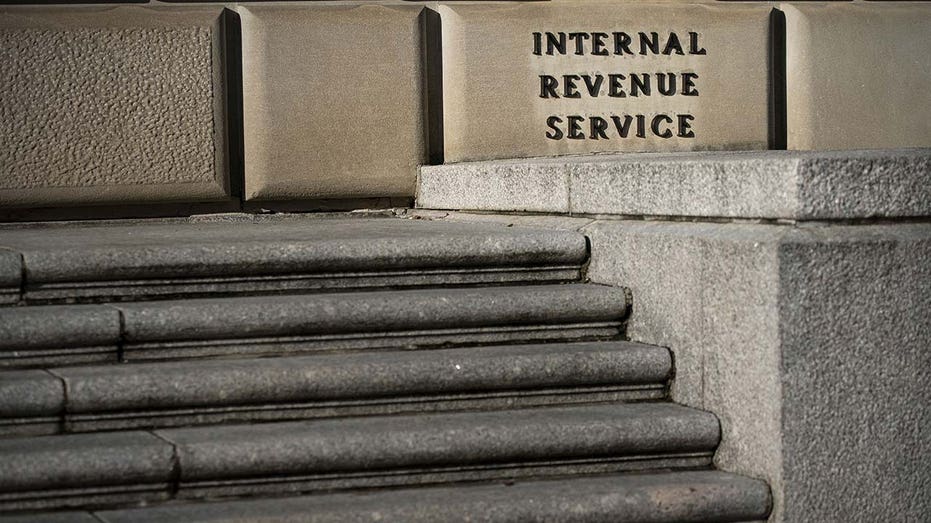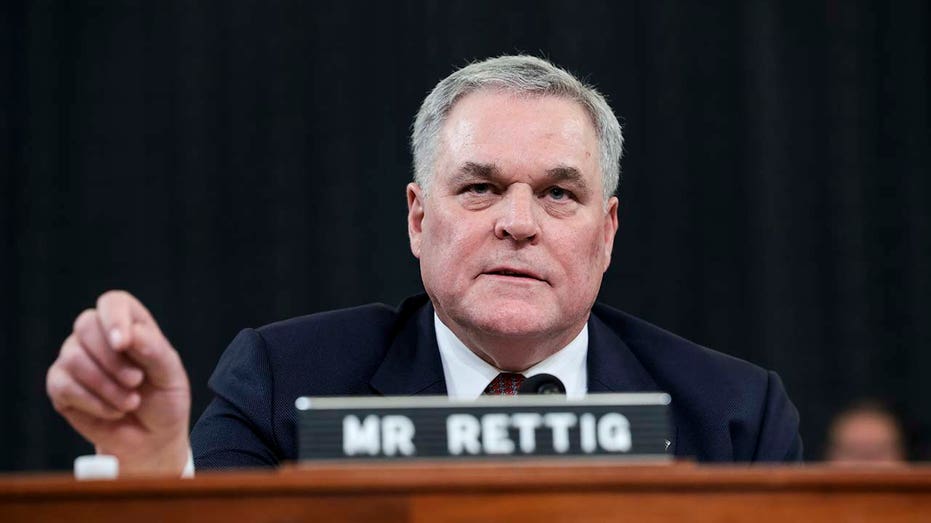The Internal Revenue Service is receiving $80 billion from the recently passed Inflation Reduction Act, sparking concerns that the tax collection agency will use the injection of cash to expand audits on Americans making less than $400,000.
The Biden administration vows that will not happen.
And Treasury Department officials insist they have a plan for going after wealthy tax cheats while keeping their promise not to expand the likelihood of auditing folks at lower income levels.

IRS headquarters in Washington, D.C. (Al Drago/Bloomberg via Getty Images / Getty Images)
Natasha Sarin, counselor for tax policy and implementation at the U.S. Treasury, provided a breakdown to FOX Business' Hillary Vaughn of how the IRS will ramp up enforcement on tax evaders without breaking the administration's pledge.
MANCHIN ADMITS ‘INFLATION REDUCTION ACT’ WON'T TAME INFLATION FOR AMERICANS ANYTIME SOON
First, Sarin explained that IRS software algorithms have a metric that allows it to launch a certain amount of audits for income groups each tax season. The audit rate for individuals making less than $400,000 will remain the same moving forward, she said, meaning audits for lower-income individuals will remain roughly the same level as in years past unless there is a significant population spike in that group.
But officials do suspect a great deal of tax evasion by those reporting to the IRS that they made $400,000 or less because many report making $0, for instance. So, the IRS will now look at actual income, rather than just what is reported to the agency.

IRS Commissioner Charles Rettig testifies before the House Ways and Means Oversight Subcommittee March 17, 2022, in Washington, D.C. (Kevin Dietsch/Getty Images / Getty Images)
"There is a noticeable difference between ranking taxpayers based on reported income and seeing how many people are in each category," Sarin said, "and then ranking taxpayers based on actual income and seeing how many people are in each income category."
IRS WANTS TO AUDIT ‘SOFT TARGETS,’ NOT THE ‘BIG GUYS’: TEXAS CATTLE RANCHER
Officials suspect audits will likely grow in the $1 million and higher income groups once that occurs because they suspect some people hiding out in the $400,000-or-less income group are making much more but not reporting it. Once those adjustments are made, those individuals would no longer be in the $400,000 income group, so Treasury does not believe this will be breaking its pledge to keep those audit rates the same.
Sarin says the agency will be targeting individuals with "opaque" income sources such as those with partnerships, trusts or international bank accounts.

Janet Yellen, U.S. Treasury secretary, speaks during a Senate Banking, Housing and Urban Affairs Committee hearing in Washington, D.C., Nov. 30, 2021. (Al Drago/Bloomberg via Getty Images / Getty Images)
The IRS also plans to be more calculated in who it audits, using new tools and resources to flag suspicious activity indicating someone wealthy is pretending to be poor, rather than randomly flagging taxpayers for audits.
To achieve this targeted approach, the IRS will use some $20 billion to update its antiquated systems and plans to hire sophisticated auditors trained at hunting down highly skilled, wealthy tax evaders and handling complex revenue audits.
"For compliant taxpayers, for honest taxpayers ... their chances of being audited as the result of an IRS that has this $80 billion in resources is going down, not up," Sarin insists. "Because now the IRS is going to audit people where there's actually suspicion of evasion."

